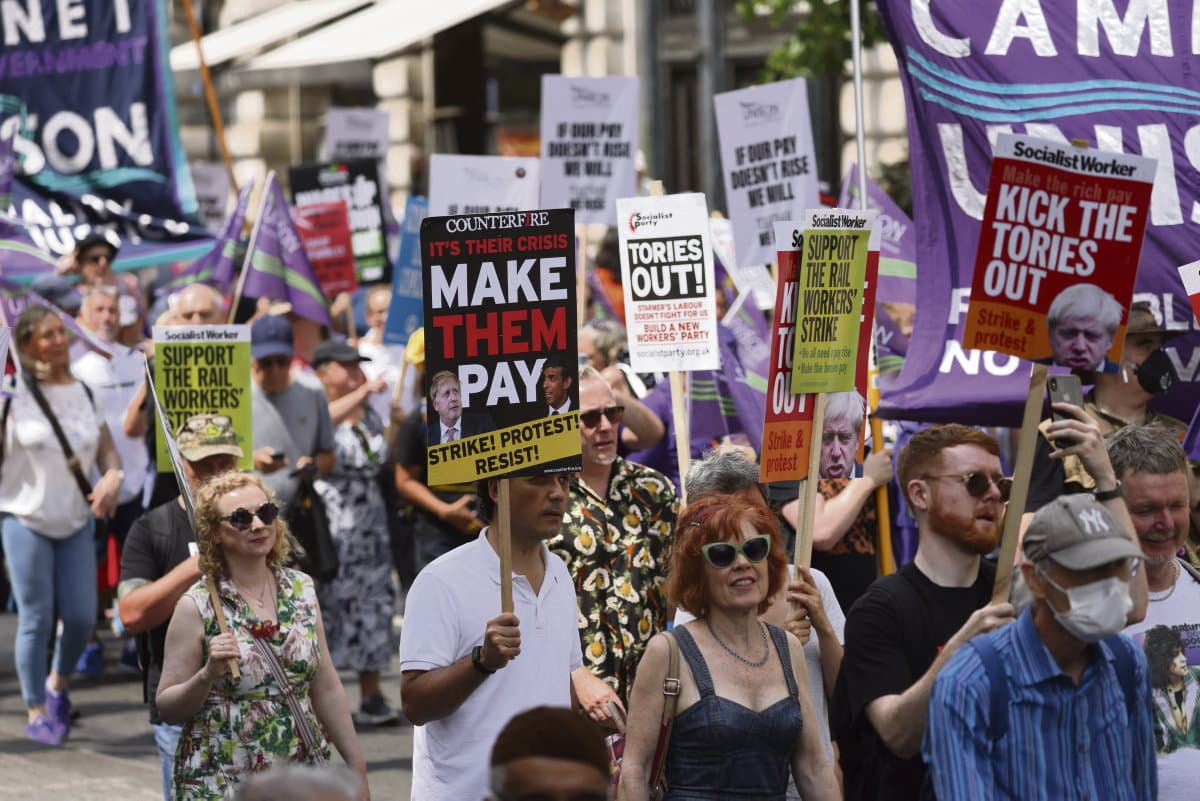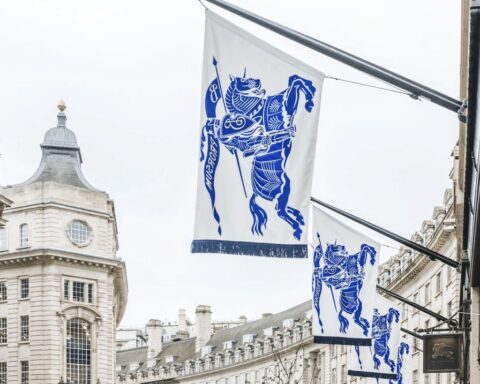It’s getting bumpy in the UK this holiday season. A massive wave of protests is unfolding across the country, against inflation and government problems. But the government is refusing to give in to wage demands. And Christmas will not be the priority for the British.
The United Kingdom has not seen a strike wave of this magnitude since the Thatcher years. With empty train stations, unavailable ambulances, ghost subways and cancelled medical appointments, the country is experiencing an unprecedented crisis, similar to the massive strikes of 1978-79.
More than one million of the country’s 68 million people will stop working in a strike that began on December 12. It is intended to satisfy wage demands in the face of inflation, which has risen by 10.7% over the past year. By comparison, in France, inflation was 6.2%.
As a result of this significant increase, the prices of some food products have risen sharply. Similarly, gas and electricity bills have soared, due to the war in Ukraine and dependence on Russian gas.
A large-scale national movement
Among the trades on strike are railway workers, postal workers, customs officers, baggage handlers and rail transport employees. Even the nurses of the National Health Service (NHS) have decided to join the strike for the first time since the beginning of the strike. This conflict shows the great political weakness of the British leaders. It comes against a backdrop of more than a decade of austerity under Conservative governments that have eroded incomes, particularly those of public sector workers.
Rishi Sunak, British Prime Minister since the end of October, is also standing firm against the wave of protests. He refuses to give in to wage demands. He has threatened to call in the army to replace the ambulance drivers and to introduce a bill imposing a minimum service in transport. And he denounced the attitude of the strikers who, according to him, were causing chaos during the Christmas holidays.
Stalemate over the holidays
In such a context, the British are unfortunately missing out on the festivities. Faced with inflation, many of them are going to food banks. Some have to make a choice between a meal or heating their homes. For its part, the government advocates a minimal state and is powerless to limit the impact of inflation.
Brexit: a disenchanted tomorrow
With the Brexit, the United Kingdom broke away from Europe, leaving behind agreements and privileges. To win the vote of its citizens, Boris Johnson promised prosperity, sovereignty and international influence. But the country has so far reaped only the slowdown of its exports, the depreciation of the pound sterling, the worst growth forecasts of the developed countries (except Russia) as well as diplomatic isolation.
Read also >Stock markets down after FED announcements
Featured photo : ©Press










